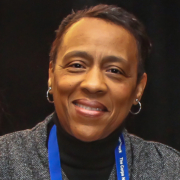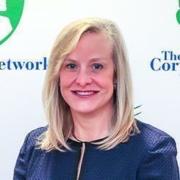
Event in Washington, DC, highlights opportunities to train workers, complete conservation projects, and address workforce and climate inequity through Conservation Corps programs
Nearly 90 years ago, faced with the Great Depression and environmental challenges, President Franklin D. Roosevelt created the Civilian Conservation Corps. By putting millions of young men to work building parks and infrastructure we still use today, the CCC saved families from poverty and gave a generation a sense of purpose.
In January 2021, within one week of taking office, President Biden signed an executive order on tackling the climate crisis. Among other measures, the order calls for the creation of a Civilian Climate Corps.
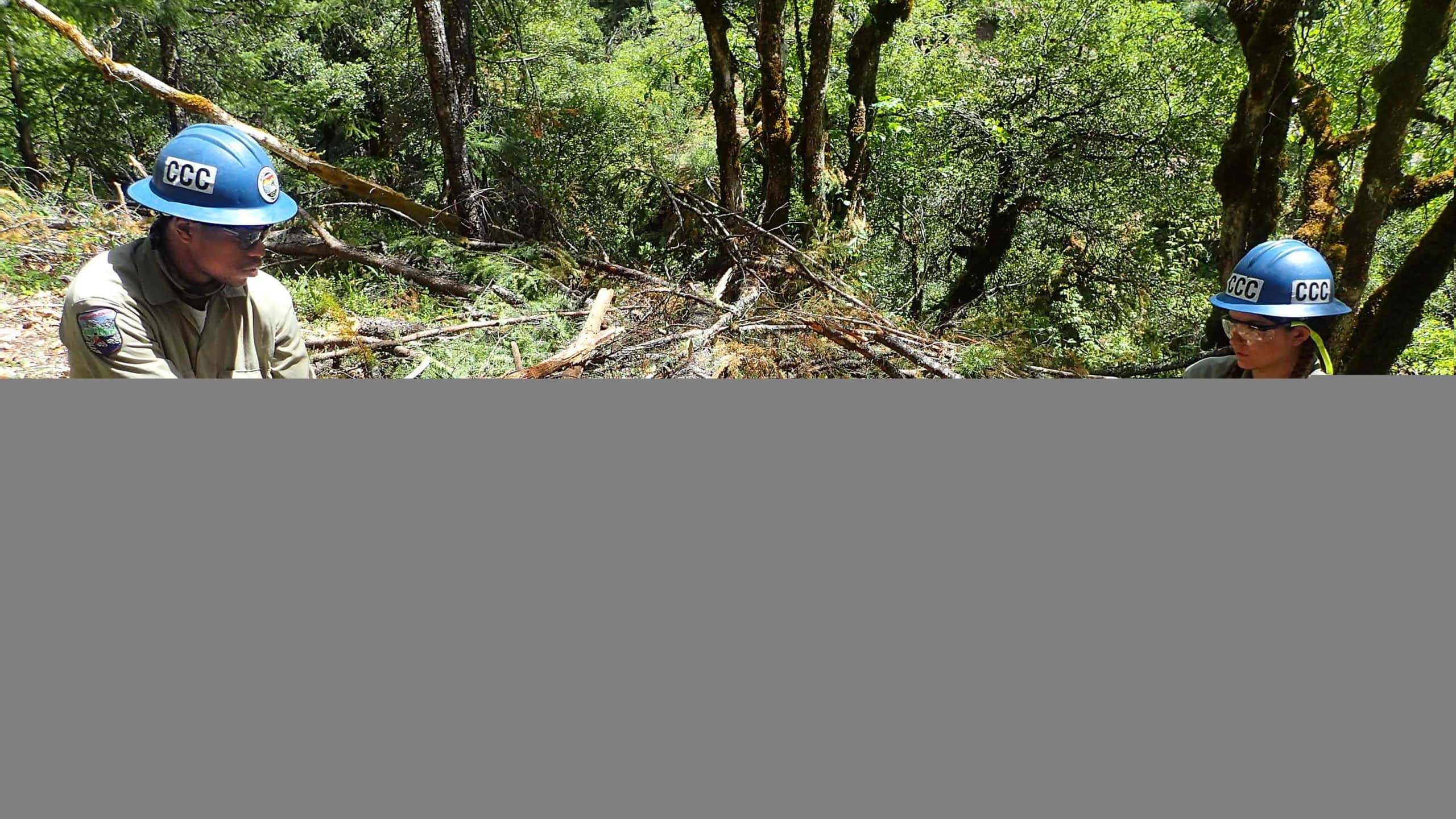
Backcountry members with the California Conservation Corps use a crosscut saw in a project with the U.S. Forest Service.
Over the past year, a growing number of leaders in federal, state, and local government have called for investment in a Climate Corps. A 21st century CCC is viewed as a tool to build America’s climate resilience by completing priority projects and providing equitable access to job training in fields like energy efficiency, resource management, and wildfire response.
“The Corps Network stands in the great American tradition of the Civilian Conservation Corps—putting millions of Americans to work in the cause of conservation. In that same spirit, The Corps Network is confronting the greatest conservation challenges of our time while also developing and diversifying the workforce,” said Chief Randy Moore of the U.S. Forest Service. “Through the Civilian Climate Corps, we anticipate dramatically increasing the scale of fuels and forest health treatments over the next decade as we tackle the effects of a changing climate.”
From March 15 – 16, 2022, The Corps Network – the National Association of Service and Conservation Corps – convened leaders from several sectors for a Climate Action Summit. The event focused on exploring opportunities to meet the goals of a Civilian Climate Corps by expanding and evolving the community of national service programs that do conservation work. The Corps Network currently has a membership of 145 Conservation Corps programs that annually engage more than 20,000 diverse young adults in conservation service projects and workforce development.
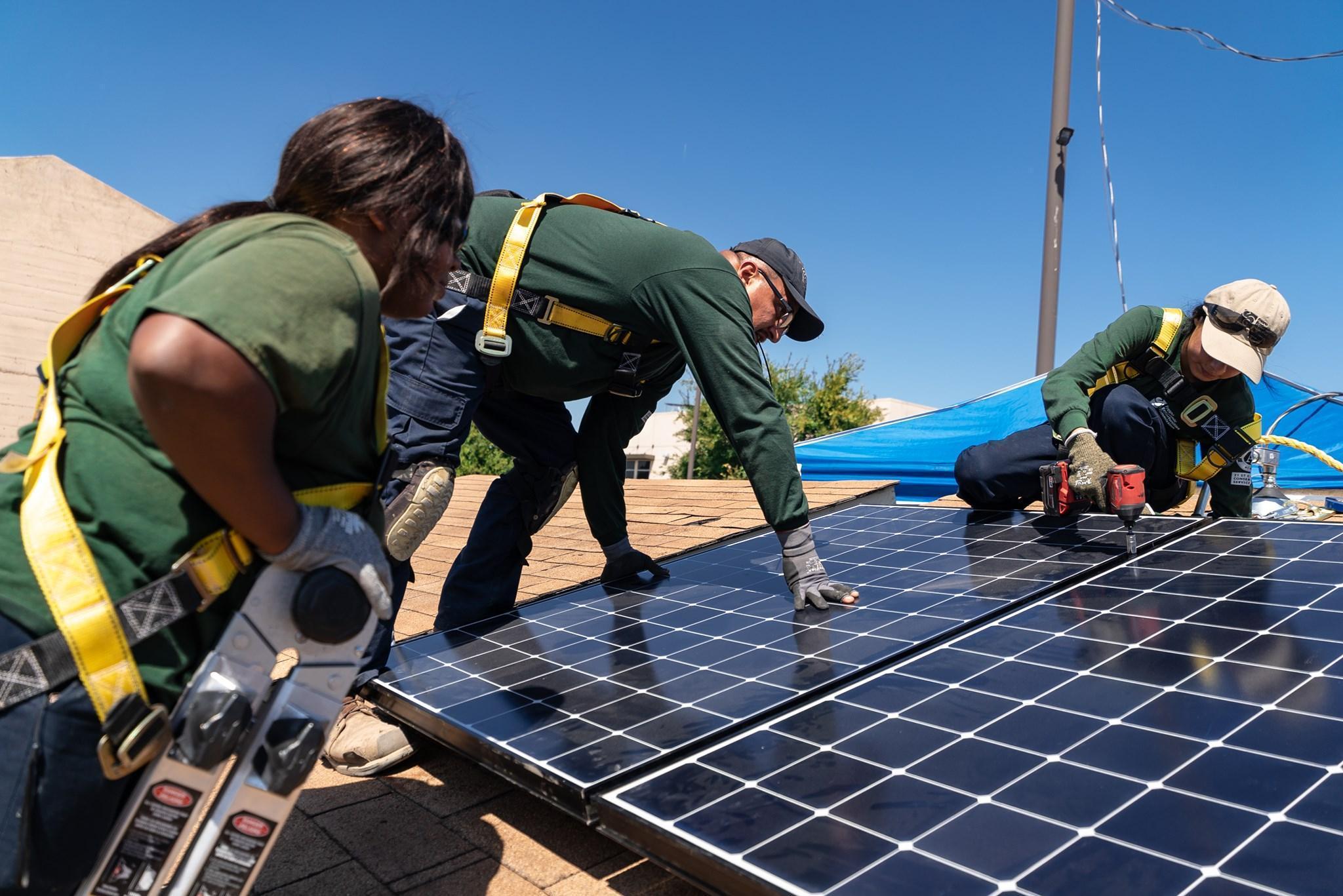
AmeriCorps members and an instructor at Fresno Local Conservation Corps installing solar panels.
“AmeriCorps has invested in environmental stewardship for nearly three decades, and we are excited to continue collaborating with The Corps Network on the future of conservation,” said Michael D. Smith, AmeriCorps CEO. “Last year, more than 15,000 AmeriCorps members provided environmental conservation and disaster response services to hundreds of communities across the nation. As we grow our conservation corps, we will continue to improve parks and public lands, increase energy efficiency, strengthen rural and urban economies, expand opportunity for young people and veterans, and create the next generation of conservation and climate resilience leaders.”
Participants at the Climate Action Summit included leaders from dozens of Conservation Corps programs across the country, as well as leaders and representatives from the White House Office of Domestic Climate Policy, AmeriCorps and the Departments of Agriculture, Commerce, Energy, Interior, Labor, and Transportation.
Presenters also included leaders from the National Park Foundation, the National Forest Foundation, the National Fish and Wildlife Foundation, and the JPB and William Penn Foundations.
Among other topics, the sessions at the Summit looked at a variety of options for funding climate service projects; opportunities to engage new partners; priority projects to address; barriers to expanding Conservation Corps; and the necessity of centering equity and environmental justice in efforts to meet the goals of a Civilian Climate Corps. While the original CCC of the ‘30s was not accessible and fair to all, today’s Corps enroll young people representing different backgrounds and life experiences. A theme of the Summit was the critical importance of prioritizing projects and service opportunities for communities that have experienced discrimination and disinvestment.
The Climate Action Summit also provided an opportunity to celebrate successes in the Conservation Corps field. Among others, Senators Chris Coons (D-DE) and Ed Markey (D-MA) attended and were recognized for their leadership on legislative efforts to fund national service and a Civilian Climate Corps.
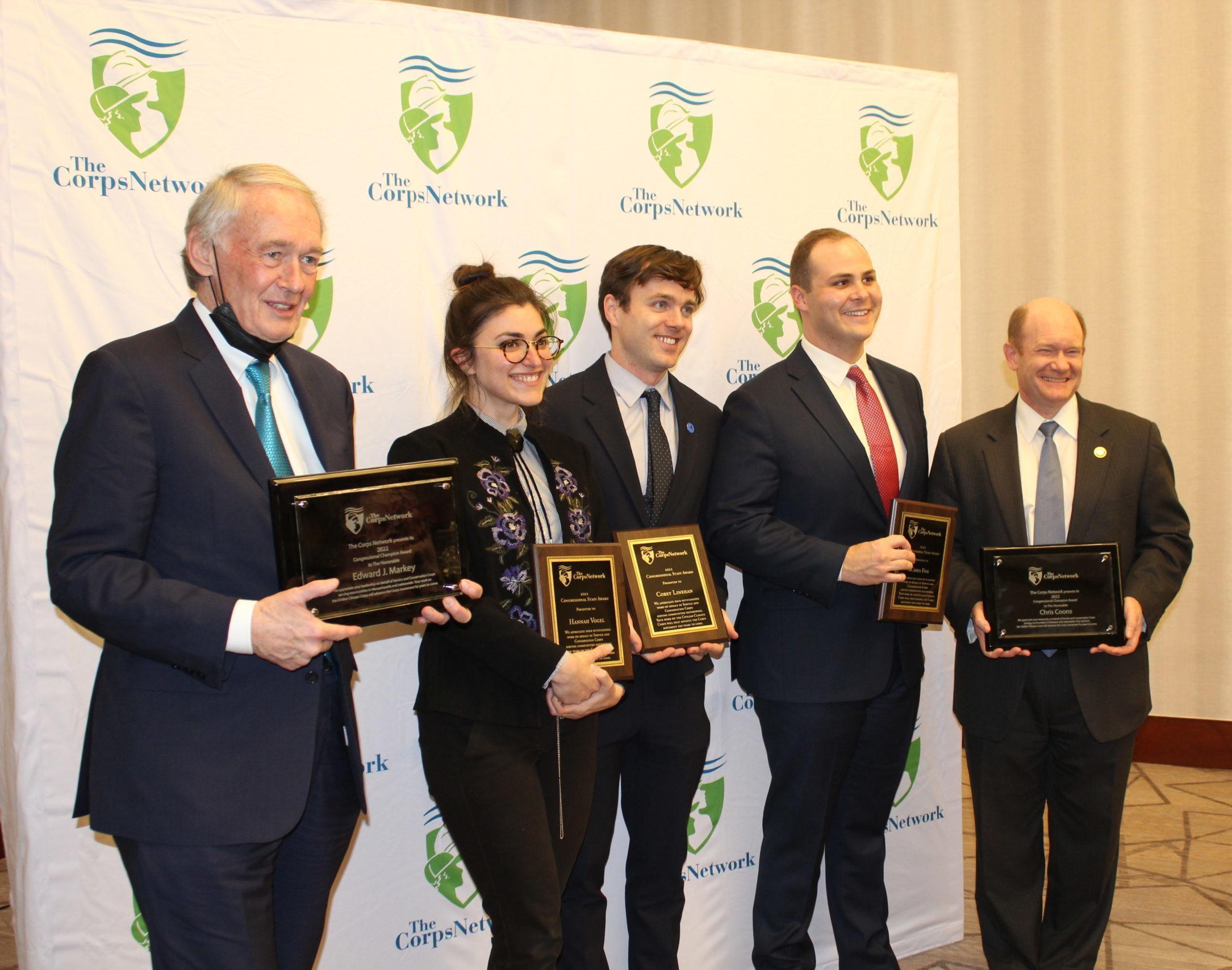
The Corps Network thanks Sen. Ed Markey (left) and Sen. Chris Coons (right) with our 2022 Congressional Champion Award for their work in support of national service and a Civilian Climate Corps. The Corps Network also recognized Congressional staff members for their exceptional work: Hannah Vogel, Office of Sen. Markey; Corey Linehan, Office of Sen. Coons; Chris Fisk, Senate HELP Committee.
“I am grateful to have had the opportunity to join the Climate Action Summit and was impressed by the breadth of engagement from service and conservation corps across the country and agencies across the federal government to confront the climate crisis and its impact on our communities head-on,” said Sen. Chris Coons (D-DE.). “I look forward to working with this dedicated community, President Biden, and my colleagues to deepen our investment in these corps’ transformational work.”
A summary report with action items will be published by The Corps Network in the coming weeks.
“The Corps Network is grateful to everyone who lent ideas and expertise to the Summit. We extend deep appreciation to those who helped make this event possible,” said Mary Ellen Sprenkel, President and CEO of The Corps Network. “The Corps Community is positioned to utilize our existing infrastructure, capacity, and decades of experience as a foundation for growth. With trained leaders, a presence across the country in urban and rural areas, and a proven track record of getting quality work done safely and effectively, the Corps community stands ready to anchor broader climate action. We look forward to collaborating with our federal, foundation, and nonprofit partners to meet our mission to advance programs that transform young people’s lives and communities.”

























